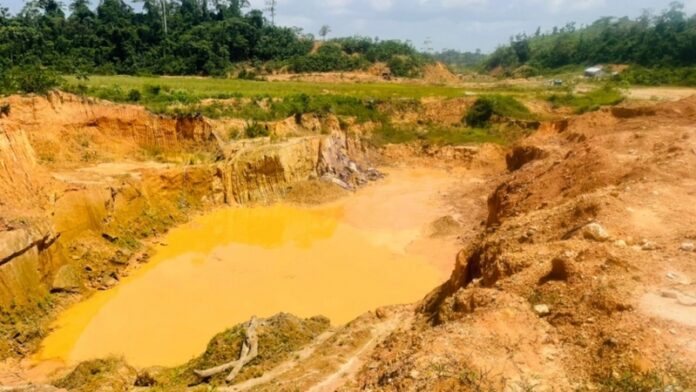The Ghana Water Limited (GWL) and the Electricity Company of Ghana (ECG) have linked their proposed utility tariff increases of over 200 percent for the 2025–2030 Multi-Year Tariff Order to the severe impact of illegal mining, commonly known as galamsey, on their operations.
GWL explained that the extensive pollution of water sources caused by illegal mining has drastically raised the cost of water treatment, putting immense pressure on the company’s finances.
Similarly, the ECG indicated that portions of its power distribution infrastructure located within forest reserves have been destroyed by galamsey activities, resulting in frequent power interruptions and escalating operational expenses.
Director of Communications for ECG, William Boateng, made these remarks during public hearings on the proposed tariff review in the Ashanti Region.
“They are digging and moving towards the roads and trenches, which is very dangerous. Anytime we have the slightest rainfall, the poles come down because the base has been weakened. That affects the stability of power supply,” he explained.
He further noted that such destruction often triggers chain collapses along transmission lines, with several poles falling simultaneously — a costly problem to resolve.
“It costs us more money to fix the fallen poles and restore the line. Beyond that, we are also losing unserved energy — power that we’ve already purchased but cannot deliver to customers,” Mr. Boateng noted.
Both companies emphasized that mitigating the environmental harm caused by illegal mining is essential to ensuring the continued provision of affordable and stable water and electricity services in Ghana.
Source : Adomonline


